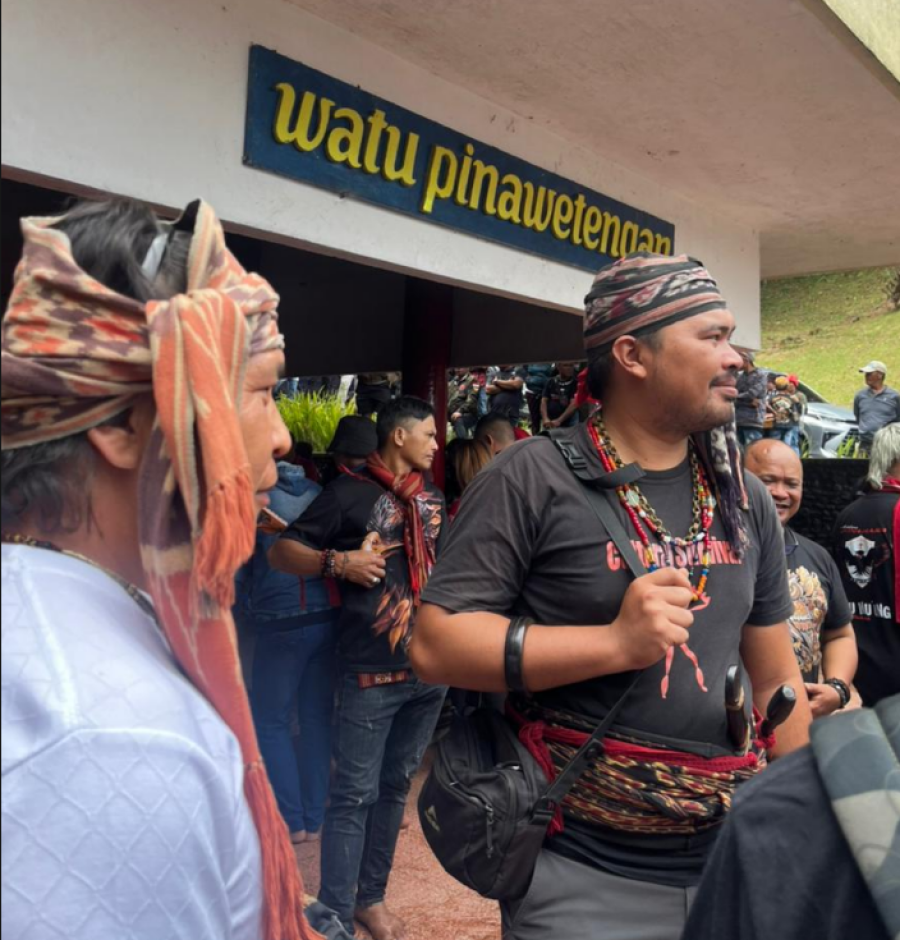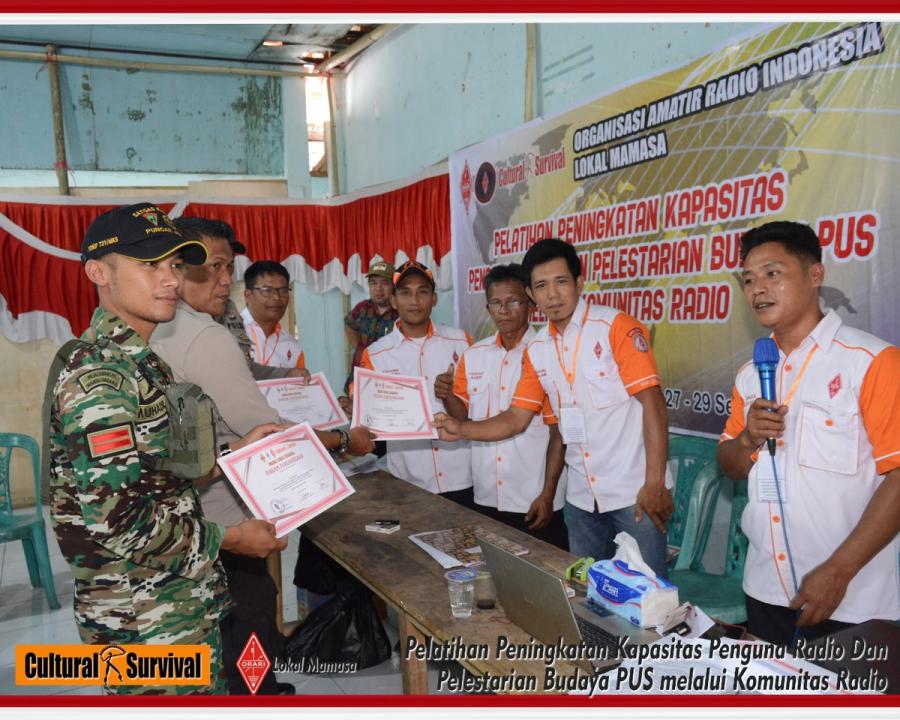INDONESIA FACTS
Note: Archipelago of 13,500 islands 6,000 of which are inhabited
Total Area: 1,919,440 km(2)
Population: 212,942,000 (1998 estimate, U. S. Census Bureau)
National capital: Jakarta
Religions: 87% Muslim, 6%Protestant, 3% Catholic, 2% Hindu, 1% Buddhist
Ethnic Groups: 45% Javanese, 14% Sundanese, 7.5% Malays 7.5% Madurese, 26% Other
Languages: Bahasa Indonesia (official), English, Dutch, over 1,000 indigenous languages
Motto: Unity in Diversity
ACEH (ACHEH) FACTS
Location: northwestern Sumatra island. Borderd on the north by Malacca Straity, south by indian Ocean
Area: 236,803 km(2)
Capital: Banda Aceh
Population: 25,000,000 Acehnese in Sumatra, 5,000,000 of whom live in Aceh
Language: Acehnese (Malay/Polynesian group)
Economy: coffee, pepper, rice, tobacco, rubber, timber. Aceh produces 50% of Indonesian oil and gas. Resources: gold, tin, platinum, molybdenum, coal
May 12, 2000: Representatives of the Stockholm-based Free Aceh Movement (GAM) and the Indonesian government sign a formal accord in Geneva, Switzerland. Referred to as a "truce" or "humanitarian pause" by Indonesian President Abdurrahman Wahid, this agreement is the culmination of secret negotiations begun last February. It marks the first step toward peace in the strife-torn Aceh province, where guerillas have been waging war for independence for almost a quarter of a century.
Wahid views the peace pact neither as Indonesian recognition of GAM, nor as an indication that both sides enjoy a similar status -- hence the term `truce' rather than `ceasefire'. Moreover, he emphasizes that his government has no intention of a troop withdrawal or of conducting a referendum on Aceh independence. Wahid's refusal to grant self-determination is consistent with his concern for maintaining national unity, one of the Five Principles, or Pancasila (Pantjasila), the philosophical basis of the Indonesian state. In contrast, GAM leaders, who also desire peace, consider the agreement a precursor to an independent Aceh Islamic state. On June 2, fifteen days after the signing of this historic accord, fighting between Aceh rebels and Indonesian forces was slated to be suspended for an initial period of three months.
June 13, 2000: A six-point agreement, "The Permanent Procedure of the Joint Committee on Security Modalities," is signed in Banda Aceh, the capital of the province. This document stipulates that the Committee set up non-offensive monitoring procedures, draw up basic implementation rules, and reinstate and specify police peacekeeping duties.
Setting the Stage for Conflict
Having violently resisted Dutch colonial rule for decades, the Acehnese were finally forced (in the early 1900s) to submit to an uneasy peace with the colonizers. The Dutch kept their troops stationed in Aceh until the Japanese invasion of 1942. In 1948, with the help of the Netherlands, the province was annexed by the newly-created Indonesian state. Five years later, when Aceh declared itself a part of Dar al-Islam (the Muslim world), Indonesian troops were dispatched to quell the unrest. A shaky truce was negotiated with Jakata in 1959 and Aceh was granted "special status." In 1976, Aceh revolted once again, declaring itself independent and marking the beginning of an era of oppression by the Indonesian regime. Throughout its history, Aceh's aspirations for self-determination and autonomy have continually been repressed.
It is easy to understand why the Indonesian nation-state has denied Aceh independence. Jakarta wishes not only to preserve national unity, but also to develop other areas of Indonesia using profits derived from exploitation of the oil and gas deposits in Aceh. Aceh supplies 50 percent of Indonesian oil and gas. Aceh territory is also considered resettlement ground for Javanese migrants.
The Acehnese, however, are opposed to this use of their land and have long aspired to independence. During this struggle for independence, their human rights have systematically been disregarded -- they have been pillaged, raped, and disappeared. Thousands have been forced to leave their homes due to targeting by Indonesian military operations. At least 5,000 people have been killed in the last decade -- 345 in the first four months of 2000 alone. They have been forbidden to write in their own language, and their freedoms of expression, religion, and culture have been repressed. In response to those violations, the Free Aceh Movement, led by Hasan di Tiro, has been striving since 1976 (both militarily and diplomatically) to establish an independent state. GAM's leaders currently live in exile in Stockholm.
Human rights violations are not the only reasons compelling Acehnese to seek independence. They feel that they are economically disadvantaged since most of the profits derived from their oil, gas and other products benefit other provinces. Instead of enjoying an improved standard of living, most Acehnese live in poverty. Jakarta's transmigration policy, which relocates workers from the overcrowded Java to other islands, is reviled. As a result of transmigration, Javanese immigrants populate the mountains and the industrial zones on the coast of Aceh, cutting off Acehnese access to the fish and rice necessary for subsistence. Perhaps most importantly, religion has dominated concerns for independence. Acehnese take issue with the fact that while Indonesia is 87 percent Muslim, it is not an Islamic state. The Acehnese have made several attempts to establish an Islamic state and continue to aspire to this goal.
Truce and Reconcilation
Despite the truce of May 12, violence continues. Two days after the ceasefire took effect, two people were shot in Aceh and 100 houses were burned. Real and lasting peace seems elusive.
Still, overtures of reconciliation engender hope. Wahid's government recently conducted Indonesia's first human rights trial; 24 Indonesian soldiers and a civilian were found guilty of murdering dozens of Aceh villagers in 1999. Defendants received sentences of up to 10 years. Furthermore, a Truth and National Reconciliation Commission is to be established to investigate human rights abuses, present and past, throughout Indonesia.
Gestures of reconciliation, however, may be too few and too late to counter the separatist drive for independence. Jakarta must solve Aceh's endemic problems if it hopes for a lasting union.
Article copyright Cultural Survival, Inc.



